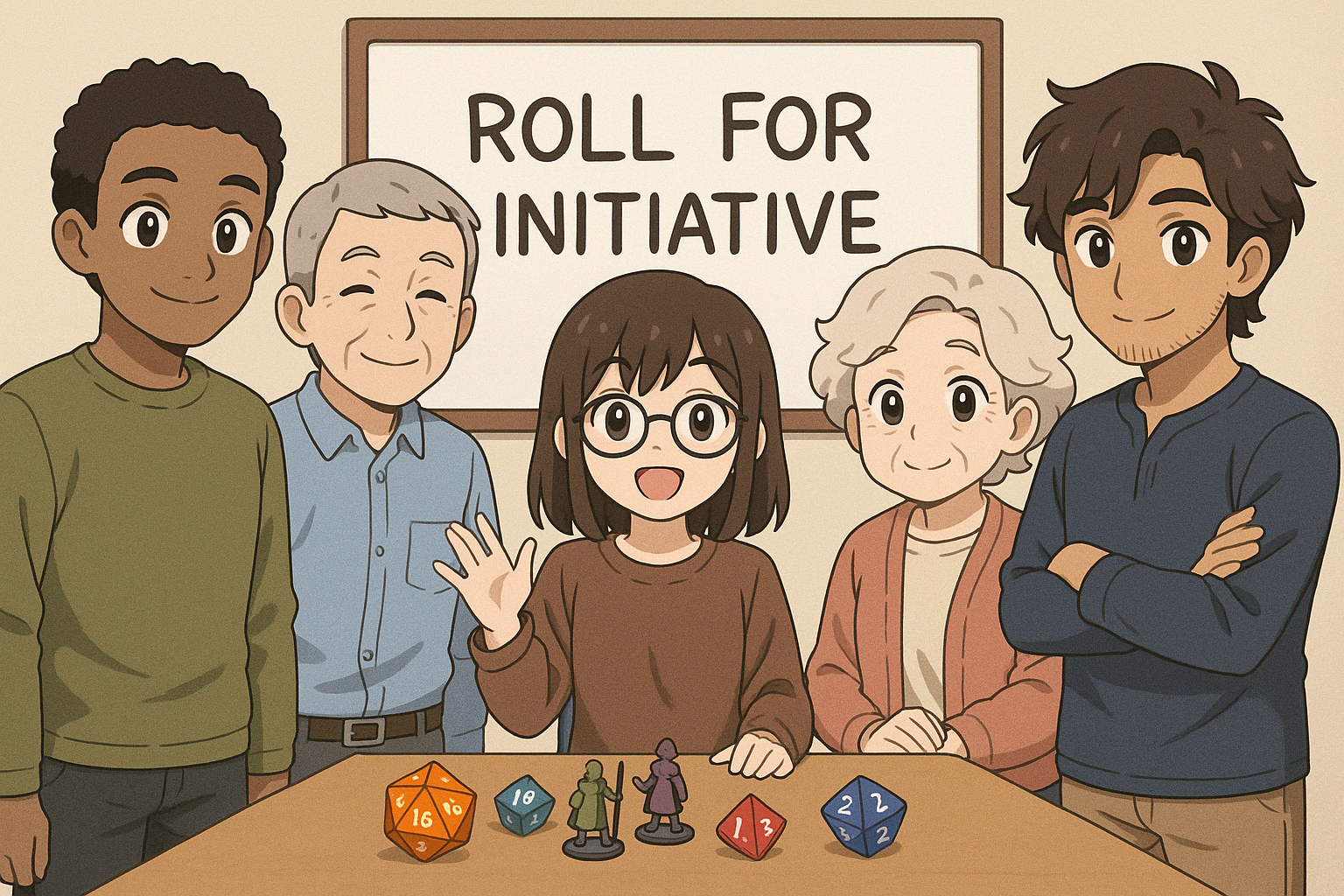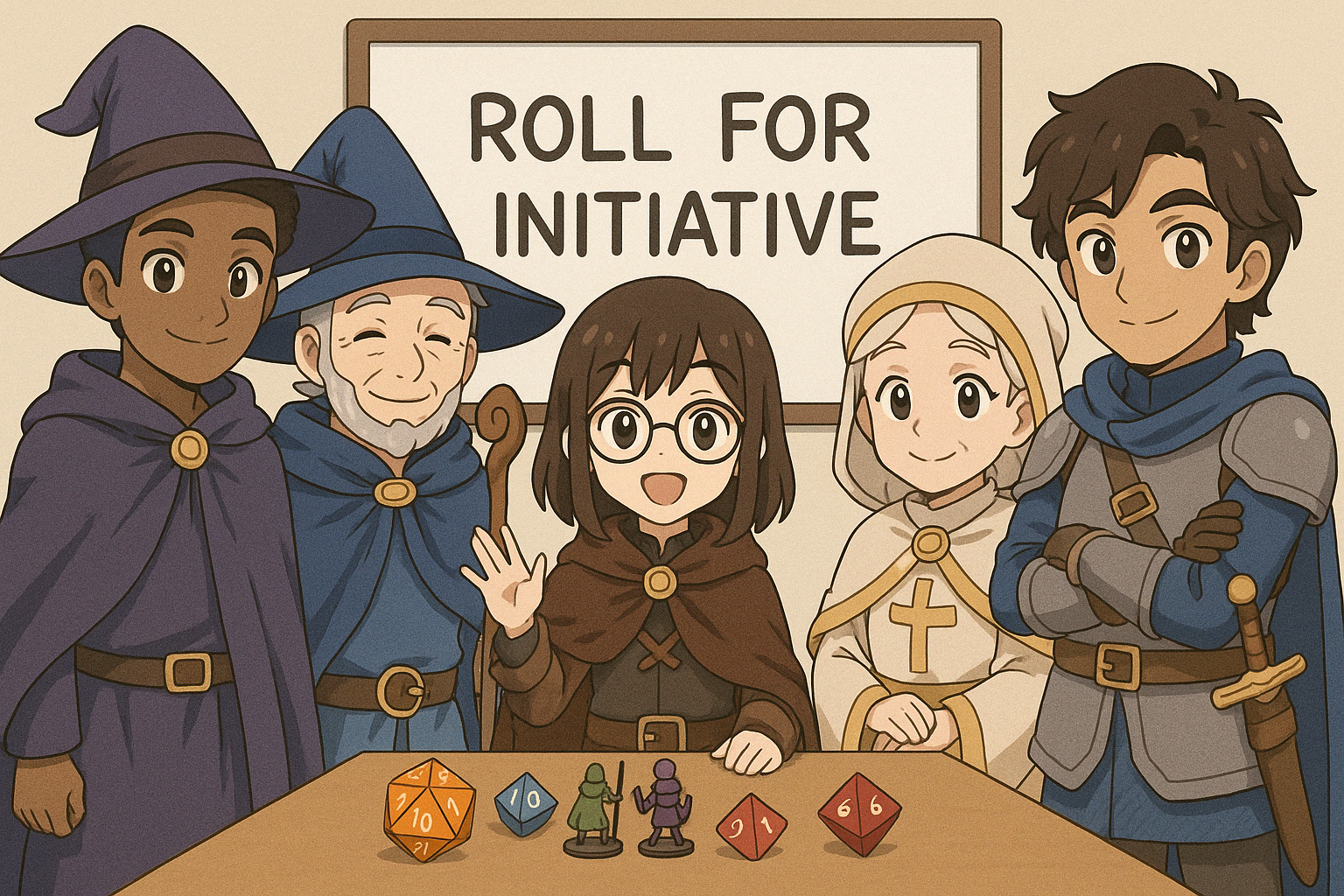What If Your Next Retro Was an RPG One-Shot?
A different approach to "gamifying" Agile.
You’re 38 minutes into a Friday retrospective.
The burndown chart’s been shared.
The “What went well” sticky notes are quietly optimistic.
The “What didn’t go well” ones are tinged with tired sarcasm.
The facilitator is gently herding the conversation toward action items.
Everyone is present… but not really engaged.
Now imagine instead:
“You awaken in the depths of the CI Labyrinth, armed with a half-tested Helm of Regression Protection and a scroll labeled buildspec.yml. Ahead lies the ECS Gatekeeper and the Broken Secret of PG_QA3…”
The team leans forward.
They roll for initiative.
And suddenly, you’re not just reviewing the sprint—You’re reliving it, remixing it, and maybe even resolving it… together.

What if your retro was a roleplaying game?
Not a standup. Not a slideshow. Not a Miro board with dot votes.
What if your sprint retrospective was reimagined as a lightweight TTRPG one-shot, where:
- Each player takes on the role of another teammate—a satirical archetype, or an exaggerated persona.
- The “quest” is the sprint: surviving the deploy, navigating blockers, vanquishing scope creep.
- The incidents, commits, and Jira tickets are now treasure, traps, or narrative beats.
- The objective is simple: make it to production with your sanity—and your team—intact.
Why would anyone do this?
Because most retros are well-intentioned but mechanical.
They invite reflection, but not necessarily empathy.
They capture feedback, but rarely story.
They identify failures, but often assign blame sideways rather than collaboratively processing what happened.
But RPGs—especially the light, narrative kind—are collaborative storytelling engines.
They’re empathy machines wrapped in dice and jokes.
They allow us to:
- Step into someone else’s reality
- Exaggerate pain points into shared lore
- Defuse tension through narrative framing
- And laugh, when we’d otherwise just groan
What does that actually look like?
Instead of “Dev 1 explains why the tests failed,” you might get:
The Junior (played by your staff engineer) rolls to bypass the failing pipeline. She succeeds… barely. But now she has the Token of Flaky Auth, and the rest of the team has Deployment Fatigue (Condition: -1 Insight).
Instead of “PM says the story changed late,” it’s:
The Backlog Oracle shifted the scope midway through the quest, and now the map no longer matches the terrain. You roll to adapt. You roll poorly.
Instead of “What should we do differently?” it’s:
What artifact did your character acquire that your real self should bring into the next sprint?
The retro ends not with post-its, but with a story.

What would you need to try this?
Not much. That’s the beauty.
- A 1-page ruleset (like TiGGR or Lasers & Feelings)
- A set of character prompts (e.g., The SRE Emeritus, The Ticket Wrangler, The QA Oracle)
- A list of real sprint stories to pull from (your own “quest log”)
- A facilitator to gently weave narrative between moments
- And a group willing to be a little weird, a little theatrical, and a lot honest
No dice? Use a number picker.
No time? Keep it to 45 minutes.
No courage? Try it with one scene, one roll, one story.
What does this unlock?
When people play roles, they play honestly.
When they play each other, they learn.
And when they see their sprint as a shared adventure—with tension, uncertainty, wins, and weirdness—they remember it.
- Suddenly that 5XX incident isn’t just “the ECS thing”—it’s “The Blight of the PG_QA3 Secrets.”
- That test coverage isn’t just tech debt—it’s “The Warding Ritual We Skipped.”
- That scope change isn’t just frustrating—it’s “The Oracle's Second Vision.”
You’ve turned sprint stress into team myth.
And that myth can guide, teach, and connect in ways bullet points never will.
Okay but really, is this useful?
Yes. Not because it replaces real process improvement,
but because it enhances how people show up for it.
If even one team member walks away saying:
“That’s how it felt when I was on call,”
or
“I didn’t know you were carrying that much weight,”
Then it wasn’t a game. It was a mirror.
What if you tried it?
What if next sprint, your retro wasn’t just a review?
What if it was a dungeon crawl?
A co-op mission?
A short-lived but honest little story
where everyone rolled together and
no one rolled alone?